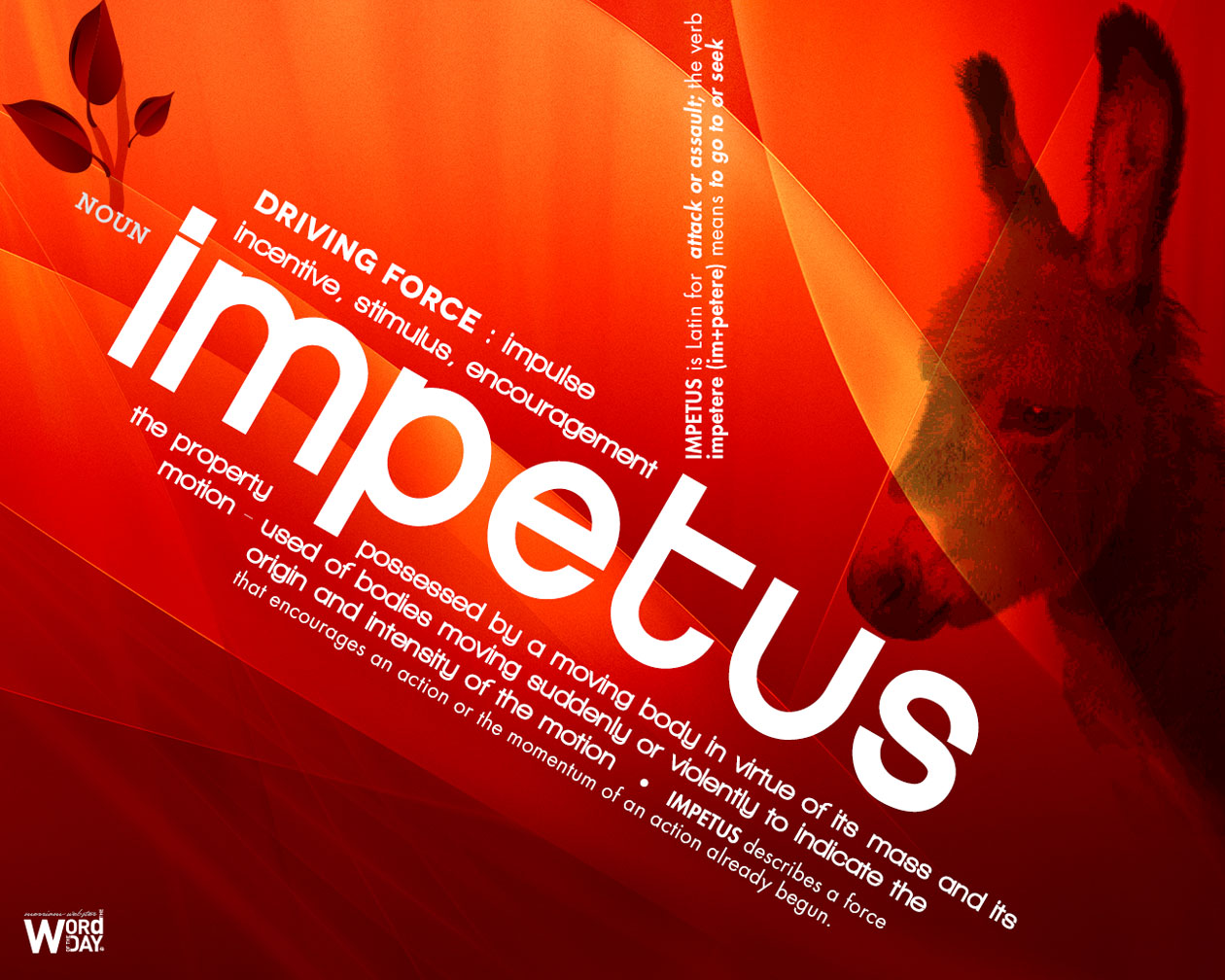
impetus \M-puh-tus\ verb
: a: a driving force : impulse
b: incentive, stimulus
c: stimulation or encouragement resulting in increased activity
: the property possessed by a moving body in virtue of its mass and its motion — used of bodies moving suddenly or violently to indicate the origin and intensity of the motion
Usage:
The high salary and generous benefits package were impetus enough to apply for the job.
“The original impetus for the demonstrations was a twenty-centavo increase in bus fares; that’s just nine cents, but no one wants to pay more for a patently inadequate system.” — From an article by James Surowiecki at newyorker.com, July 8, 2013
Origins:You already have plenty of incentive to learn the origin of “impetus,” so we won’t force the point. “Impetus” comes from Latin, where it means “attack or assault”; the verb “impetere” was formed by combining the prefix “in-” with “petere,” meaning “to go to or seek.” “Petere” also gives us other words suggesting a forceful urging or momentum, such as “appetite,” “perpetual,” and “centripetal.” “Impetus” describes the kind of force that encourages an action (“the impetus behind the project”) or the momentum of an action already begun (“the meetings only gave impetus to the rumors of a merger”).
Entry in Webster's Dictionary
Colors
Hex#: fe8122
RGB: 254.129.34
CMYK: 0.61.96.0
Pantone: 1495 C
Hex#: f41c01
RGB: 244.28.1
CMYK: 0.98.100.0
Pantone: 172 C
Hex#: 800001
RGB: 128.0.1
CMYK: 29.100.100.38
Pantone: 207 C
Hex#: 5c0000
RGB: 92.0.0
CMYK: 36.97.92.58
Pantone: 490 C

